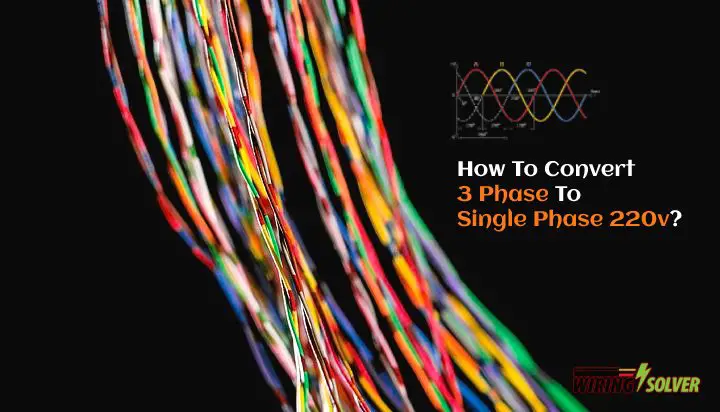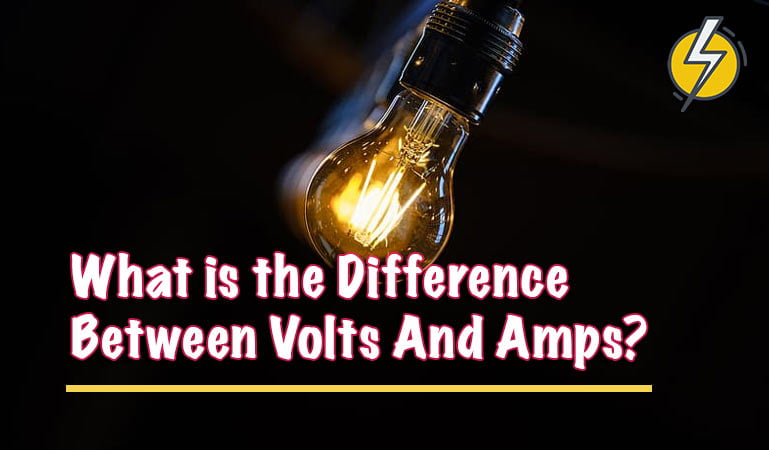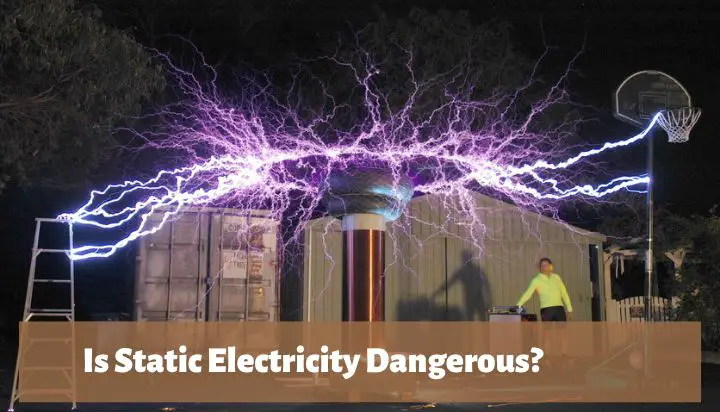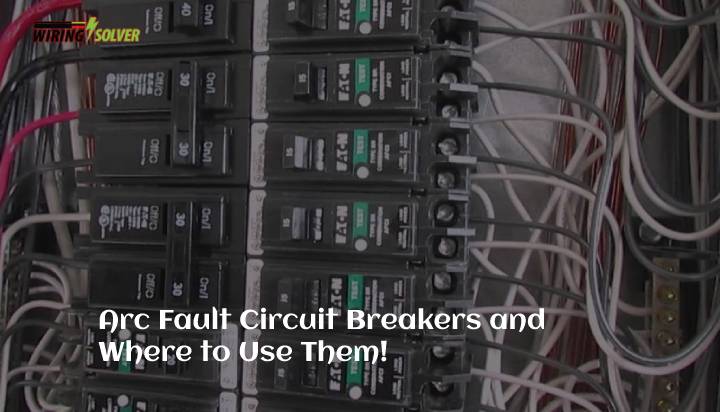Surge protectors are an essential component of any home or office setup, especially for those who rely on electronic devices such as laptops and computers.
A surge protector is designed to protect your electronic devices, such as your laptop, from power surges. It can prevent any damage to your laptop and potentially decrease the risk of any a fire hazard.
Is it really necessary to invest in one? In this article, the benefits of using a surge protector for your laptop will be discussed. You will also find out about the different types of surge protectors and choosing the right one.
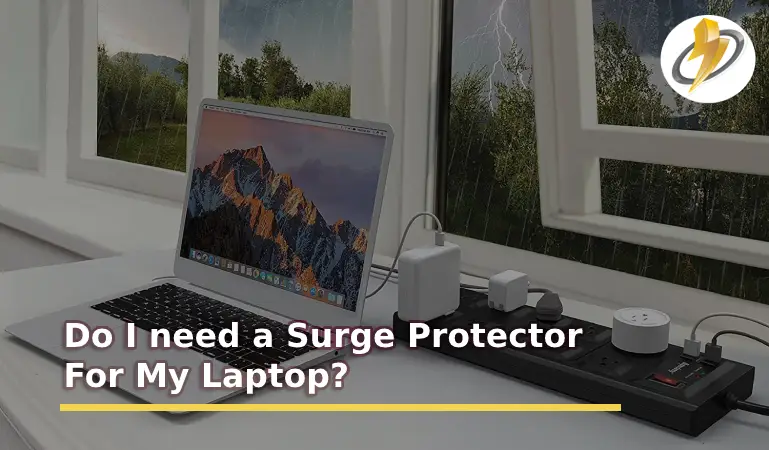
How Does a Surge Protector Protect a Computers or Related Devices?
A transient event like a voltage strike can last a very short period. In most cases, it will last for one to 30 microseconds. For you, it’s almost nothing but in these 30 seconds, your devices go through a lot.
These spikes and surges can occur due to various reasons, such as lightning strikes, power outages, and faulty wiring. When a voltage spike or surge occurs, it can cause damage to your electronic equipment.
A surge protector works by redirecting excess voltage away from your electronic equipment and into the ground. This helps to prevent the voltage from reaching your equipment, which would otherwise be exposed to the full force of the spike or surge.
Most surge protectors have a built-in fuse or circuit breaker that will trip if the voltage exceeds a certain level, further protecting your equipment.
In addition to protecting your laptop from voltage spikes and surges, a surge protector can also help to extend the lifespan of your devices by regulating the voltage levels that they receive.
This can be especially useful in areas with unstable or fluctuating power supply, which can cause damage to your equipment over time.
Laptop and Surge Protector: The Best Protection Combo
A surge protector is a device that will help in protecting the device adding to it from voltage spikes. As the name suggests, this one is a protector for your devices.
It is always recommended to get your hands on the perfect surge protector for your laptop or computer. Here, you will get to know what happens if you do not use a power surge and why you should use one!
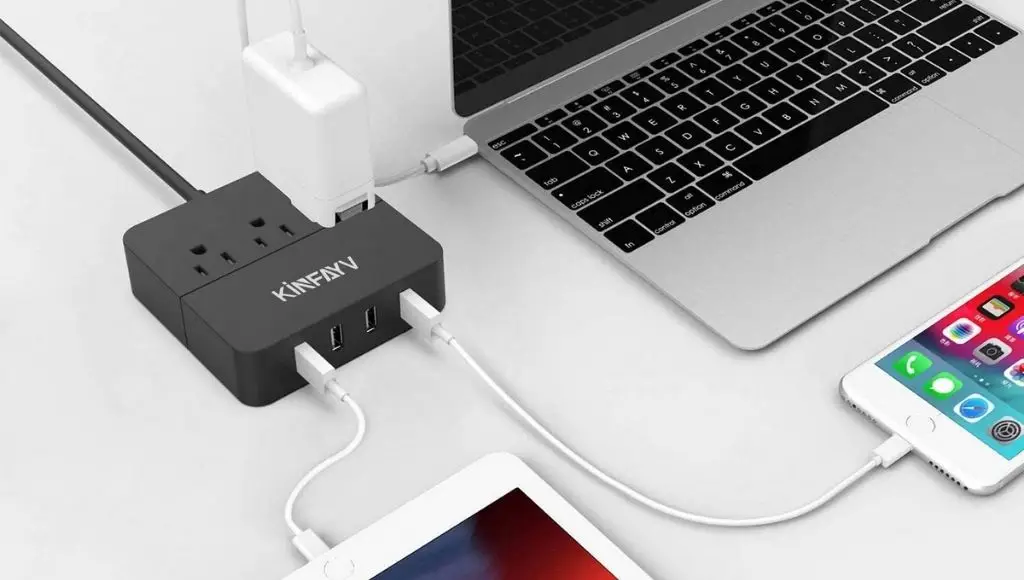
Protects from Battery Damage
If you don’t use one, and there is a power surge when the laptop is switched on, your battery will be in danger.
A laptop battery requires to be recharged properly and maintain the charge when it is not plugged in. But if there is a power surge, an imbalanced current will flow which will affect the battery.
And in the case of severe situations, the battery won’t take charge anymore. If the power surge is a frequent thing, chances are, the battery will take a lot of time to get charged.
In some situations, it will exhaust the battery charge faster than before. And eventually, your laptop’s battery will be dead.
Defends against Charger Damage
The issue you face with the battery when there is a power surge can affect the charger of your laptop too. In this case, the charger will take too much time to charge the laptop. Also, the battery won’t be charged properly.
Instead, the laptop will exhaust a lot of charges and the battery won’t run longer like before. However, a surge protector can be amazing to save you from this.
If you have plugged in the laptop with the help of a power strip surge protector, it will safeguard your charger from any sort of damage done by the power surge.
Keeps Hard Drive Fast
If you are not using a surge protector, the frequent power surges will make the hard drive of the laptop slow. When there is a power surge, the imbalanced flow of current will affect the hard drive of your laptop.
If the laptop is not dead then in most cases, the laptop will significantly slow down the system. For this, when you open your laptop, it will take much longer to process and will open slower than before.
When you operate it, it will still be slow no matter if it’s fully charged or not. And in the worst-case scenario, you won’t be able to open some specific files after the power surge hits your laptop hard.
Saves the Motherboard
When the motherboard is damaged, there are fewer chances of getting back your laptop. When you go through a power surge and there is excessive voltage suddenly, it hits the motherboard of the laptop.
Too much current directed to the motherboard will damage it. You won’t be able to use the device if the circumstance is too complicated.
How to Choose the Right Surge Protector for Your Computer and Laptop?
Here are some things to consider when selecting a surge protector:
Voltage rating:
Make sure the surge protector you choose is rated for the voltage of your local power supply. In the United States, the standard voltage is 120V.
If you live in a country with a different voltage, such as 220V, make sure to choose a surge protector with a matching voltage rating.
Amperage rating:
The amperage rating of a surge protector refers to the amount of current that it can handle.
You’ll want to choose a surge protector with amperage rating that is equal to or greater than the combined amperage of all the devices you’ll be connecting to it.
Number of outlets:
Consider how many devices you’ll be connecting to the surge protector and choose one with enough outlets to accommodate them.
Protection rating:
Look for a surge protector with a high protection rating, such as “IEEE 587 Category A+,” which means it has been tested and certified to protect against voltage spikes and surges.
EMI/RFI filtering:
Some surge protectors also offer EMI (electromagnetic interference) and RFI (radio frequency interference) filtering, which can help to reduce interference and noise on your power line.
This can be especially useful for devices that are sensitive to interference, such as audio and video equipment for the computer.
Warranty:
Look for a surge protector with a good warranty, as this can give you added peace of mind and protection in case something goes wrong.
By considering these factors, you can choose a surge protector that is well-suited to your needs and will provide effective protection for your computer or laptop.
Alternatives to Using a Surge Protector for A Laptop Or Computer
Here are some alternatives that you can consider for a surge protector:
Uninterruptible Power Supply (UPS):
A UPS works by using a battery to supply power to your devices until the power is restored.
In addition to providing backup power, a UPS can also protect your equipment from voltage spikes and surges by regulating the voltage levels it receives.
Surge-protected power strips:
Power strips with built-in surge protection can provide an additional layer of protection for your electronic equipment.
However, keep in mind that these power strips are not as effective at protecting against severe surges as standalone surge protectors.
Whole-house surge protection:
If you’re concerned about voltage spikes and surges throughout your entire home, you may want to consider installing whole-house surge protection.
This can be done by installing a surge protector at your main electrical panel, which will provide protection for all the devices in your home.
Summary
If you rely on a laptop or computer for work, entertainment, or both, you know how frustrating and costly it can be when something goes wrong with your device. So, you should use a surge protector for your electronics.
While it’s not necessarily required for all electronic devices, it’s a good idea to invest in one to protect your valuable equipment and save money on costly repairs or replacements in the long run.

![Belkin Surge Protector is Not Working!! [Solved]](https://wiringsolver.com/wp-content/uploads/2022/07/Causes-Behind-a-Belkin-Surge-Protector-Not-Working.webp)
![How to Fix Hole in Ceiling from Light Fixture? [Full Guide]](https://wiringsolver.com/wp-content/uploads/2021/09/How-to-Fix-Hole-in-Ceiling-from-Light-Fixture.webp)
